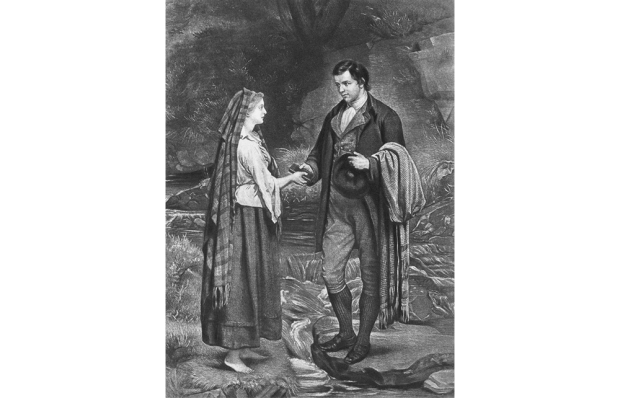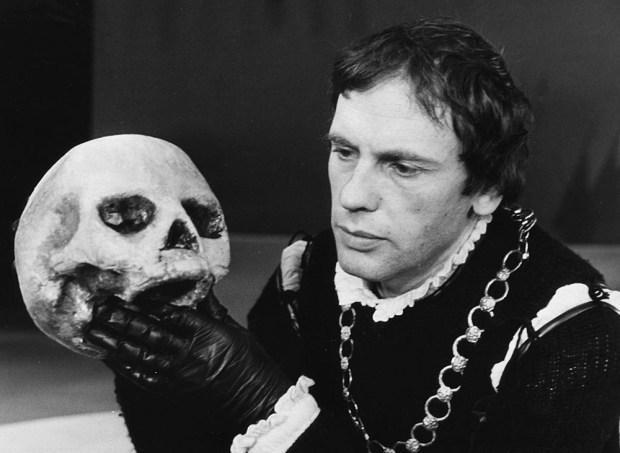In Competition 2819 you were invited to write a poem either in free verse mocking rhymed, metrical verse or in conventional verse mocking free verse.
Auden was no fan of vers libre: ‘If one plays a game, one needs rules, otherwise there is no fun.’ (D.H. Lawrence, he felt, was one of the few poets who could pull free verse off.) But there are those who question the designation ‘free’. The poet and critic Yvor Winters maintained that ‘the free verse that is really verse, the best, that is, of …Marianne Moore, Wallace Stevens, and Ezra Pound is the antithesis of free.’ And T.S. Eliot agreed with him. Last time this comp was run, the jury was split. This time round most of you came down on Auden’s side. The winners take £25 each; Alan Millard nabs £30.
Pace you who, scorning rules and reason,
Write rambling lines which neither scan nor rhyme.
Your scripts I scorn as literary treason,
Your verse I curse as pure, poetic crime.
You lack the pomp of Pope, the charm of Chaucer,
The marching rhythm of iambic feet,
In literature could anything be coarser
Than wild, meandering verse without a beat?
I justly would deserve the world’s rejection
If, disregarding measured, metric rules,
I ruined this, a poem of perfection,
With formless freedom only fit for fools
By writing, for example, a little line
Followed by a ludicrously long one that nobody
understands!
Oh no! Free verse I shun with all my heart
And with this closing couplet prove my art.
Alan Millard
— absent-minded like martinets (who don’t think
of anything
but action), they’re on a dawn patrol with a fez and
a fly-whisk,
hunting down layabout poems that missed the roll
call
because they were strolling
into experiment, somewhere unexpected:
they neglect their language, drive it out of pens
into an abattoir of form —
next poem (stunned), next poem (stunned), as the
carcasses
move overhead to be
drawn and quartered into verses,
to be learned lines as in detention, as in regiment,
as in morgue,
the cemetery of expression —
can’t hear the echo, the repetitions, the whole breathlessness of breath.
Bill Greenwell
Out of the blights that visit me,
Black on the page to plague my soul,
I curse as worst verse labelled free —
Yea, free of effort and control
They easiest move who’ve learned to dance.
Unpractised shufflers aren’t endowed
With grace like that. They stand no chance
When hard-won skill is disavowed.
Beyond the unskilled, rhyme disappears;
Planned rhythm, too: tricks of the trade
With which true poets charm our ears;
Without which, words too swiftly fade.
Wimps find the field of play too strait
When rules restrict. Their rigmarole
Of chopped-up prose does not create
The kind of poem that kicks a goal.
Ray Kelley
Hexameters from Homer led the way,
Singing of ancient Ithaca and Troy;
In later centuries rhyme came into play,
For Chaucer, Pope and Spenser to deploy.
The path of metre reached its apogee
In stellar works penned by the Bard and Milton;
Much later though came some whose verse was
‘free’,
Abandoning the ground these two had built on.
A US banker (forenames Thomas Stearns)
Epitomised this: his so-called chef d’oeuvre,
With rhyme and metre least of its concerns,
Is rambling, incoherent, lacking verve.
Free verse is often just a piece of prose,
Scattered around the page, and you may find,
If ditching metre is what you propose,
Complete disaster — Tay Bridge comes to mind.
Roger Theobald
’Zooks! You hidebound convention-cravers,
Rhyme’n’rhythm-driven drivellers,
Petty prosody purists, easy-peasy cowards,
Afeard of fun, adventure-free drones;
Yes you, in bard-jacket subfusc,
Elbow-patched corduroy, hapless hair aflow
Like your cliché claptrap stanzas:
Ever dared dismiss those dreary dactyls —
Single, double, ptero? So spondee-fondee,
You hendecasyllabic helots, trudging the party line;
Limericky lackeys, penny-a-liners, score a mighty
zilch
On the Beaufort scale of heat and hwyl.
Ain’t no rumpy-pumpy goin’
Tum-titi-tum-titi down to your graves.
Am I right? You bet I Amb!
Mike Morrison
Your British bard drinks bitter beer.
He loves an end-stopped line.
He wants to make his meaning clear.
He likes iambics fine.
But wine-soaked foreigners (or worse)
Prefer to mystify.
Their work is cloudy and perverse,
Their sense of form awry.
Take Rimbaud and his loony tunes;
Take Whitman, just as daft —
Two posturing hot-air balloons.
Why can’t they learn their craft?
‘Expressive, vital form’? My bum.
Don’t take me for a fool.
Just take your damn vers libre, chum,
And shove it up your cul.
Basil Ransome-Davies
No. 2822: Shakespeare does Dallas
You are invited to submit an extract from a scene from a contemporary soap opera (TV or radio) as Shakespeare might have written it. Please email entries (up to 16 lines) to lucy@spectator.co.uk by midday on 30 October.
Got something to add? Join the discussion and comment below.
Get 10 issues for just $10
Subscribe to The Spectator Australia today for the next 10 magazine issues, plus full online access, for just $10.
You might disagree with half of it, but you’ll enjoy reading all of it. Try your first month for free, then just $2 a week for the remainder of your first year.













Comments
Don't miss out
Join the conversation with other Spectator Australia readers. Subscribe to leave a comment.
SUBSCRIBEAlready a subscriber? Log in